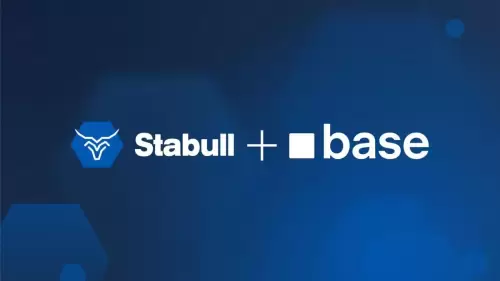 |
|
 |
|
 |
|
 |
|
 |
|
 |
|
 |
|
 |
|
 |
|
 |
|
 |
|
 |
|
 |
|
 |
|
 |
|
Cetus ProtocolのXに関する発表は、「攻撃者が約2億2,300万ドルを盗んだ」という流動性暗号プールから約2億2,300万ドル」

Cetus Protocol's announcement on X that “an attacker has stolen approximately $223M” from its liquidity crypto pools set off the loudest governance controversy in Sui's short history. The team wrote that it had “took immediate action to lock our contract preventing further theft of funds,” adding a reassurance that “$162M of the compromised funds have been successfully paused. … We are working with the Sui Foundation and other ecosystem members right now on next-step solutions” and promising “a full incident report.”
Cetus ProtocolのXに関する発表は、「攻撃者が約2億2,300万ドルを盗んだ」という流動性暗号プールから、SUIの短い歴史の中で最も大きなガバナンスの論争を引き起こしました。チームは、「資金のさらなる盗難を防ぐ契約をロックするために即時の措置を講じた」と書いており、「妥協した資金の1億6,200万ドルが成功裏に一時停止したという安心感を追加しました。
Those next-step solutions triggered a philosophical firefight. To keep the stolen assets marooned on-chain, a super-majority of validators agreed to ignore outgoing transactions from three hacker-controlled addresses. Cyber Capital founder Justin Bons argued that the very act of blacklisting demonstrates structural centralization: “SUI’s validators are colluding to CENSOR the hacker’s TXs right now! … Does that make SUI centralized? The short answer is YES; what matters more is why?” Citing only 114 validators and founder–heavy staking, he declared: “The ‘founders’ own the majority of supply & there are only 114 validators!”
これらの次のステップソリューションは、哲学的な銃撃戦を引き起こしました。盗まれた資産をオンチェーンに並べるために、3つのハッカー制御アドレスからの発信取引を無視することに同意しました。サイバーキャピタルの創設者であるジャスティンボンズは、ブラックリストのまさにリストが構造集中化を実証していると主張しました。 114人のバリデーターと創設者〜重いステーキングのみを引用して、彼は次のように宣言しました。
Amogh Gupta from the SUI Foundation countered that the move was a legitimate exercise of distributed governance. “Just because validators reach consensus about something, doesn't mean they're 'colluding'. […] Validators on other chains can (and have) done the same. You can view it like OFAC. apexminds claims to be able to disable ALL outgoing transactions from the hacker's address. This is false. It is possible to disable transactions to another chain, e.g. the hacker moved some funds to ETH. We could choose to ignore those transactions, rendering them effectively unspendable. But we haven't done so yet. We are currently discussing what, if any, further action to take. apexminds claims that this is impossible because there is no "switch" that disables transactions. This is correct. It would work like ignoring transactions to a specific token, e.g. imagine a scenario where a specific token is being used maliciously and broadly in an attempt to drain liquidity from multiple protocols. In such a scenario, perhaps validators might choose to collectively ignore that token type. It is not about brute force but rather about making targeted economic decisions. It is an extreme measure that would be used in a truly urgent instance with broad agreement among validators. It is not something that a single entity could do unilaterally. It is also not something that is done lightly. It is a capability that could be used for good or bad, and there is an opportunity for discussion and debate among validators and the community at large to decide how, if at all, it should be used. It is a collective decision-making process, not a hierarchical one. It is also not something that is unique to Sui. OFAC sanctions are a capability that exists on Ethereum to prevent sanctioned parties from engaging in economic activity on-chain. This capability was used earlier in 2023 to great effect to largely shut down North Korean cybercriminal activity on Ethereum. The point is that this capability is not specific to Sui. The OFAC/sanctioned transactions were a grey area that some viewed as economically and geopolitically motivated. A hack is clear as day bad, so there is no contention about it being good or bad.
SUI財団のAmogh Guptaは、この動きが分配されたガバナンスの正当な行使であると反論しました。 「バリデーターが何かについてコンセンサスに達したからといって、彼らが「共謀している」という意味ではありません。それらは、現在、これが不可能であると主張していることを事実上宣伝していませんそのトークンのタイプは、ターゲットを絞った経済的決定についてです。すべて、それは階層的なプロセスではなく、SUIに固有のものではありません。 OFAC/認可されたトランザクションは、経済的および地政学的に動機付けられていると見なされる灰色の領域であるため、それが良いか悪いかについての主張はありません。
Bons rejected the analogy. “You are misinformed about the 2023 OFAC regulations: Not a single ETH TX was censored, as collusion was impossible on a chain with low Network Concentration and a large number of independent validators. That SUI’s distribution of power is so concentrated that this is even possible in the first place is the problem. We are talking about a single entity (or small group) having enough power to shut down all TXs to another chain (which would be a major event), not something that can be done quickly or easily. It is also not something that is done lightly. It is an extreme measure that would be used in a truly urgent instance with broad agreement among validators and the community at large. It is not something that a single entity could do unilaterally. It is also not something that is done without discussion and debate. It is a collective decision-making process, not a hierarchical one. It is also not something that is unique to Sui. OFAC sanctions are a capability that exists on Ethereum to prevent sanctioned parties from engaging in economic activity on-chain. This capability was used earlier in 2023 to largely shut down North Korean cybercriminal activity on Ethereum. The point is that this capability is not specific to Sui. The OFAC/sanctioned transactions were a grey area that some viewed as economically and geopolitically motivated. A hack is clear as day bad, so there is no contention about it being good or bad.”
bonsは類推を拒否しました。 「あなたは2023年のOFAC規制について誤解されています。ネットワーク濃度が低く、多数の独立した検証装置を持つチェーンで共謀が不可能であるため、単一のETH TXは検閲されていませんでした。SUIの電力分布は、これが最初に可能であるため、問題です。それは、単一のエンティティが一方的に行うことができるものではなく、それはconceの存在ではない、それは、単一のエンティティが行うことができるのは、それは、それは、単一の事業者が行うことで、簡単に緊急のインスタンスで使用される極端な尺度ではありません。制裁された当事者は、この能力を主に閉鎖するために、この能力を妨げています。
Gupta: “This is a common misperception. The founders' tokens are locked up for a multi-year schedule
Gupta:「これは一般的な誤解です。創業者のトークンは複数年のスケジュールのためにロックされています
免責事項:info@kdj.com
提供される情報は取引に関するアドバイスではありません。 kdj.com は、この記事で提供される情報に基づいて行われた投資に対して一切の責任を負いません。暗号通貨は変動性が高いため、十分な調査を行った上で慎重に投資することを強くお勧めします。
このウェブサイトで使用されているコンテンツが著作権を侵害していると思われる場合は、直ちに当社 (info@kdj.com) までご連絡ください。速やかに削除させていただきます。






























































